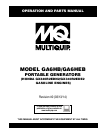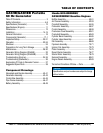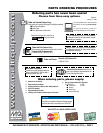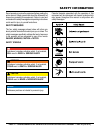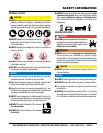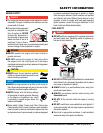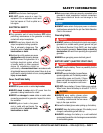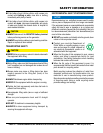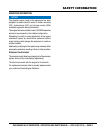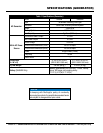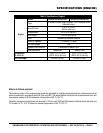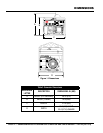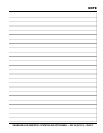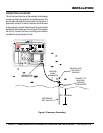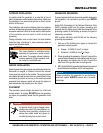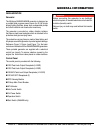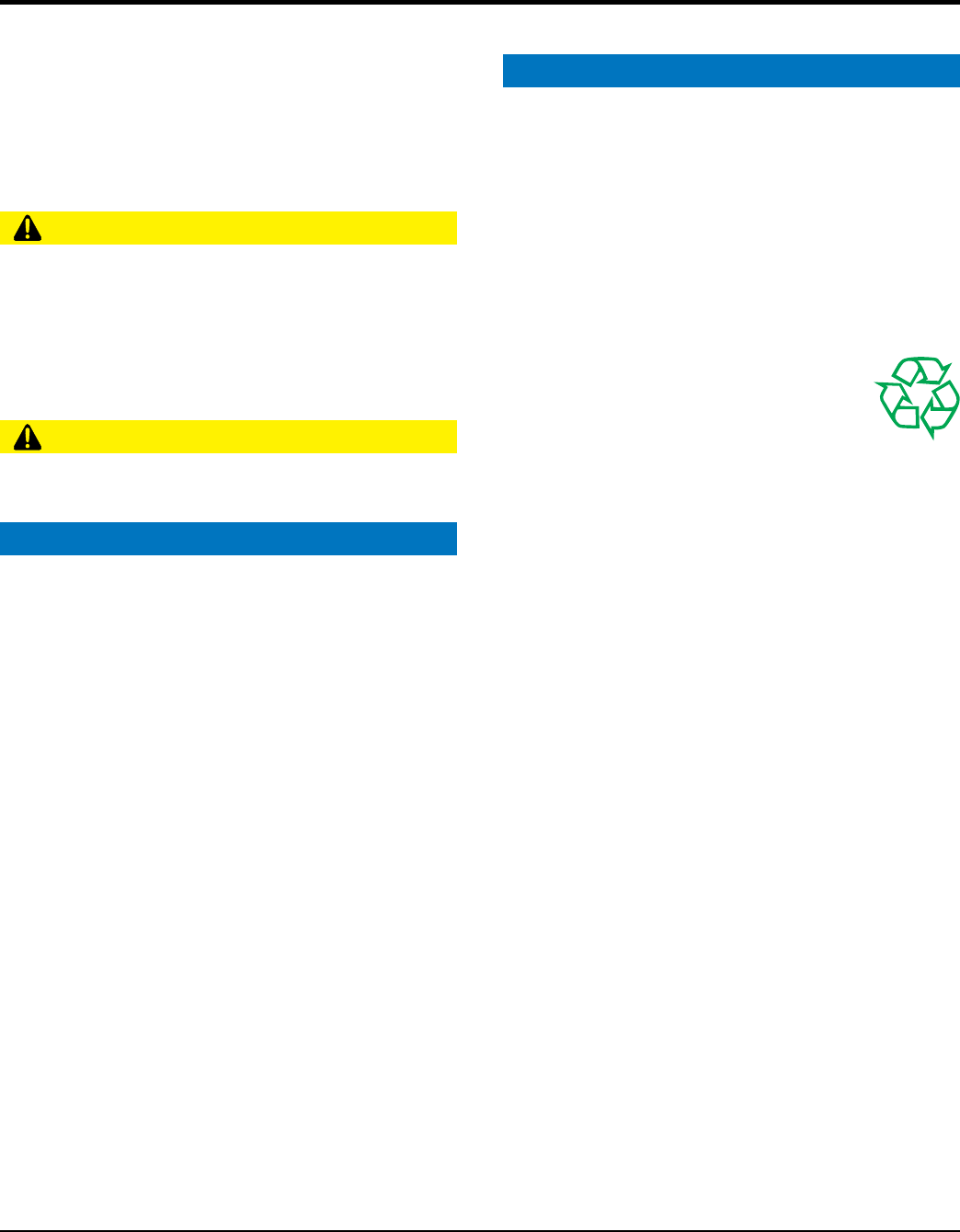
page 8 — ga6HB/ga6HeB
SAFETY INFORMATION
If the battery liquid (dilute sulfuric acid) comes into
contact with , rinse skin or clothing
immediately with plenty of water.
If the battery liquid (dilute sulfuric acid) comes into
contact with , rinse eyes immediately with plenty
of water and contact the nearest doctor or hospital to
seek medical attention.
disconnect the
before performing service on the generator.
keep battery cables in good working condition.
Repair or replace all worn cables.
allow any person or animal to stand underneath
the equipment while lifting.
NOTICE
Before lifting, make sure that the equipment parts (lifting
bail if equipped) are not damaged and screws are not
loose or missing.
Always make sure crane or lifi tng device has been
properly secured to the lifting bail (hook) of the
equipment.
shutdown engine before transporting.
lift the equipment while the engine is running.
Tighten fuel tank cap securely and close fuel cock to
prevent fuel from spilling.
Use adequate lifting cable (wire or rope) of suffi cient
strength.
Use one point suspension hook and lift straight
upwards.
lift machine to unnecessary heights.
tie down equipment during transport by
securing the equipment with rope.
NOTICE
Decommissioning is a controlled process used to safely
retire a piece of equipment that is no longer serviceable.
If the equipment poses an unacceptable and unrepairable
safety risk due to wear or damage or is no longer cost
effective to maintain (beyond life-cycle reliability) and is to
be decommissioned (demolition and dismantlement),be
sure to follow rules below.
pour waste or oil directly onto the ground, down
a drain or into any water source.
Contact your country's Department of
Public Works or recycling agency in your
area and arrange for proper disposal of
any electrical components, waste or oil
associated with this equipment.
When the life cycle of this equipment is over, remove
battery and bring to appropriate facility for lead
reclamation. Use safety precautions when handling
batteries that contain sulfuric acid.
When the life cycle of this equipment is over, it is
recommended that the trowel frame and all other metal
parts be sent to a recycling center.
Metal recycling involves the collection of metal from
discarded products and its transformation into raw
materials to use in manufacturing a new product.
Recyclers and manufacturers alike promote the process
of recycling metal. Using a metal recycling center
promotes energy cost savings.



